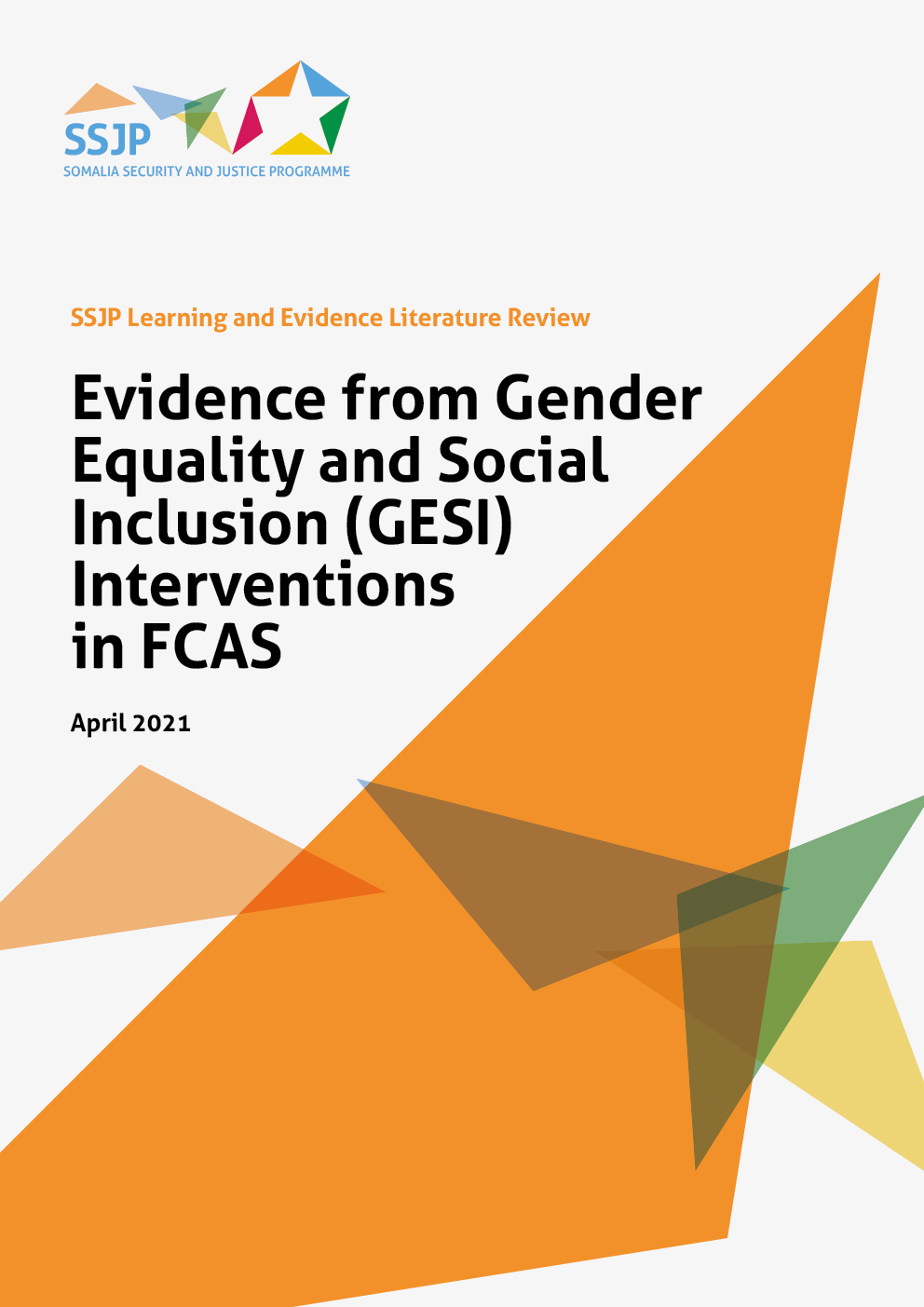Global literature on gender, equality and social inclusion (GESI) in the context of security and justice is heavily skewed towards interventions aimed at increasing access to justice and security specifically for women rather than for groups who are marginalised and particularly on access to justice for gender-based violence (GBV). There is no strong evidence in the literature that has been reviewed linking increased rates of reporting, access to legal services or even increased conviction rates to either overall decreases in rates of GBV or strengthened perceptions of safety and security.
Most of the interventions considered in this report are also relevant to programming intended to increase access to justice and security for women and others who are marginalised beyond the focus on GBV. There is insufficient evidence to conclude whether they would be appropriate to the Somali context. However, there are possibilities for GESI-focused programming that warrant further research and consideration. For example, from literature related to paralegal programmes in West African post-conflict contexts.
Findings from the literature include:
- Longer-term training, the inclusion of both men and women in training offered, facilitation as a discussion rather than as a lecture and the need for buy-in from senior leadership (including police trainers co-leading training) are lessons learned from training programmes with police and communities in comparative jurisdictions that lead to greater impact.
- Coordinated community response security programmes and use of different service providers’ screenings to identify and refer GBV survivors.
- Gender desks in police stations without robust funding and outside of a wider intervention, focusing on reforming the law alone and one-off training are examples in the literature on what does not work.
Other types of GBV programming, such as economic and social empowerment programmes, should complement interventions designed to increase access to justice for GBV.

